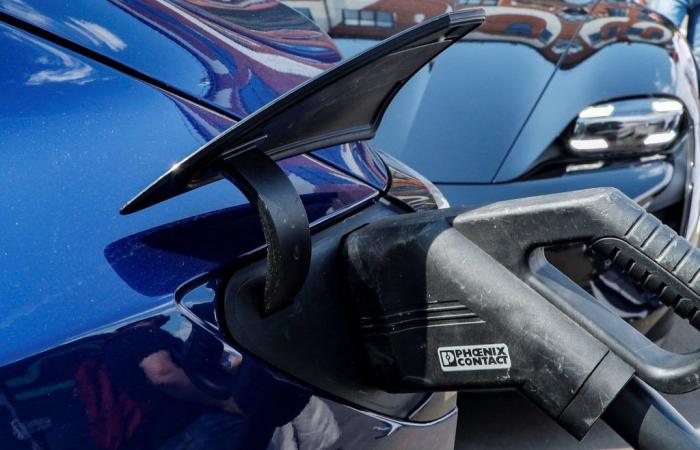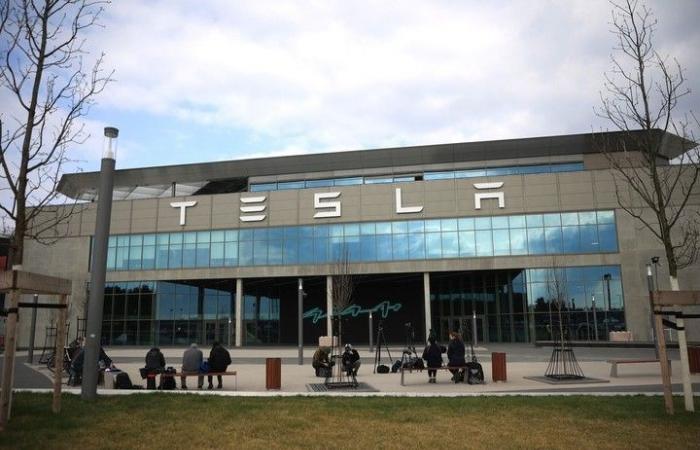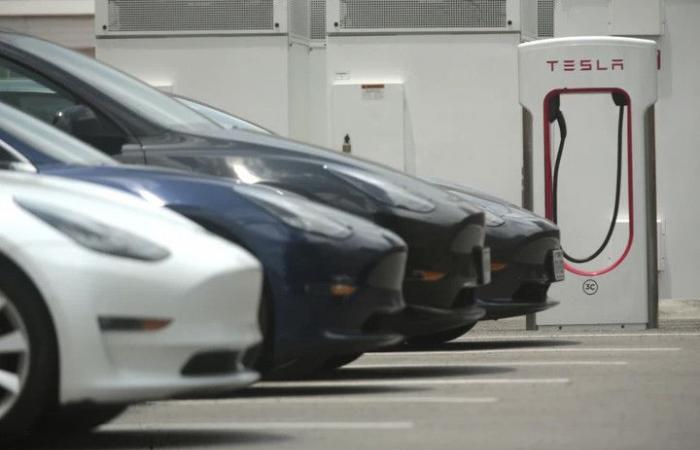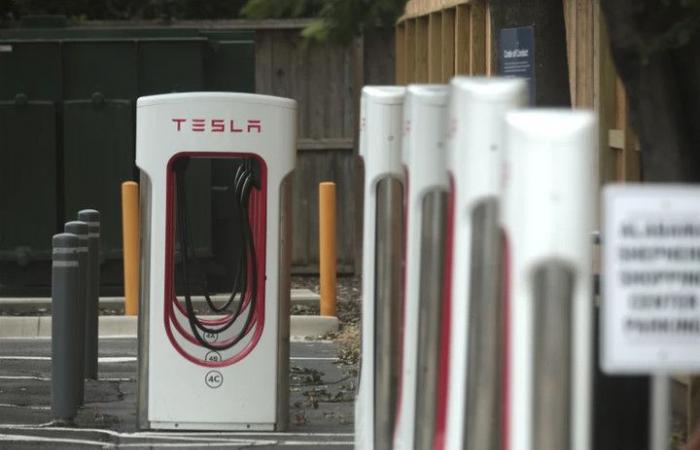Shortly before 2 a.m. on a cold April night in Seattle, a Chevrolet Silverado pickup truck pulled up to a charging station electric vehicles located at the edge of a shopping center parking lot.
Two men, one of them with a headlamp, got out of the vehicle. A security camera recorded them taking out some bolt cutters. One of them cut several charging cables and the other loaded them into the truck. In less than two and a half minutes they had disappeared.
The scene of that night has become part of a worrying pattern throughout United States: Thieves attack electric vehicle charging stations with the intention of stealing cables made of copper.
The price of copper
The price of copper is close to its all-time highs in world markets, which means that criminals can earn more and more money selling this material.
Cable theft often disables entire stationsforcing electric vehicle owners desperately looking for a charger that works. For drivers, the situation can be desperate and stressful.
It is not the only problem they face. At the beginning of the year, in the middle of winter, a cold storm in the United States affected electric cars: subzero temperatures depleted the batteries and reduced range.
Another obstacle for manufacturers
Broken chargers have become the last obstacle for electric car manufacturers of the United States in its arduous effort to convert more drivers in the country to the use of electric vehicles, which adds to the general anxiety of the population about the shortage of charging stations.
About four in 10 American adults believe electric vehicles they take too long to load or they don’t know of any nearby charging stations.
Considering that finding a charging station does not necessarily mean finding working cables, cable theft has become one more reason for skeptical buyers to stick with traditional gasoline vehicles or hybrids, at least for now.
Major US automakers They have made big financial bets for buyers to abandon combustion engines and opt for electric vehicles, as the world faces the increasingly serious consequences of climate change.
 Stellantis plans for 50% of its passenger vehicles to be electric by the end of 2030. Photo: AFP
Stellantis plans for 50% of its passenger vehicles to be electric by the end of 2030. Photo: AFPStellantis plans for 50% of its passenger vehicles to be electric by the end of 2030. Ford has set a goal of producing 2 million electric vehicles per year by 2026, or 45% of its global sales. General Motors, the most ambitious of the three, has committed to selling only electric passenger vehicles by the end of 2035.
These goals, of course, They depend on companies being able to convince more buyers potentials that there will always be a charge available when they travel. But the increase in cable theft does not seem to strengthen the manufacturers’ arguments.
Two years ago, according to Electrify America, a company that manages the second largest network of direct current fast chargers in the country, a cable was cut every six months at one of its 968 charging stations, with 4,400 plugs throughout the country.
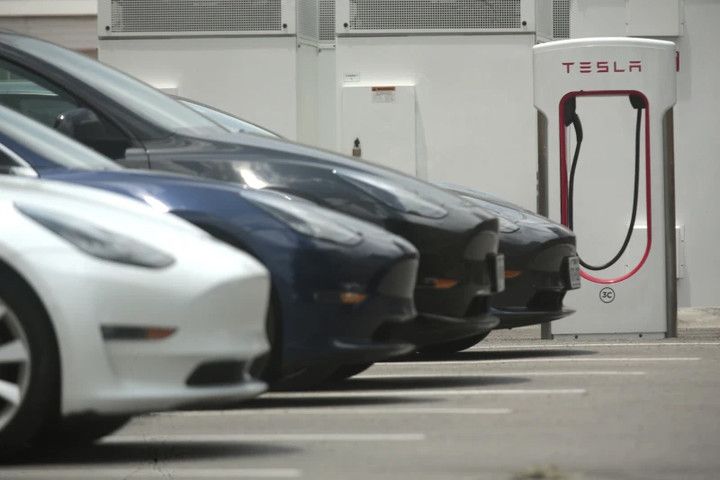 At a Seattle station, wires were cut six times. Photo: AP
At a Seattle station, wires were cut six times. Photo: APUntil May of this year, the figure amounted to 129, four more than in all of 2023. At a Seattle station, wires were cut six times last year, said Anthony Lambkin, vice president of operations at Electrify America.
“We’re allowing people to go to work, take their kids to school, go to medical appointments,” Lambkin said. “So having an entire station out of service is pretty shocking for our customers.”
Two other leading electric vehicle charging companies, Flo and EVgo, have also reported an increase in thefts. Seattle-area charging stations have been a frequent target. Thefts have also occurred in Nevada, California, Arizona, Colorado, Illinois, Oregon, Tennessee, Texas and Pennsylvania.
Tesla, also affected
The stations managed by Teslawhich operates the largest fast charging network in the country, have been affected in Seattle, Oakland and Houston.
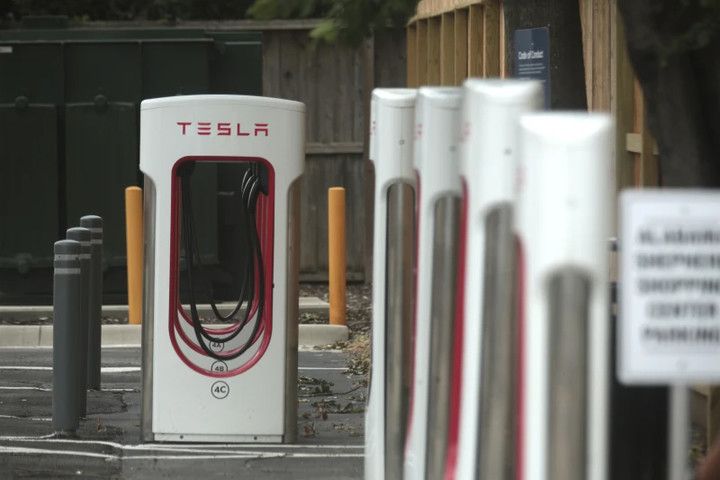 Stations managed by Tesla, which operates the largest fast charging network in the country, have been affected. Photo: AP
Stations managed by Tesla, which operates the largest fast charging network in the country, have been affected. Photo: APCharging companies say that there really isn’t much copper in the cables, and that what there is It is difficult to extract. Carson estimates that criminals can obtain between 15 and 20 dollars per cable at a scrapyard.
“They don’t make a lot of money,” he says. “They’re not going to get together to buy a yacht.”
Still, the more cables thieves can steal, the more money they can make. At 20 dollars a cable, with 20 stolen cables they could obtain 400 dollars.
The problem for charging companies is that It is much more expensive to replace the cables. In Minneapolis, where cable thefts have occurred at municipal charging stations, theirReplacing a single cable costs about $1,000.according to Joe Laurin, project manager for the Department of Public Works.

